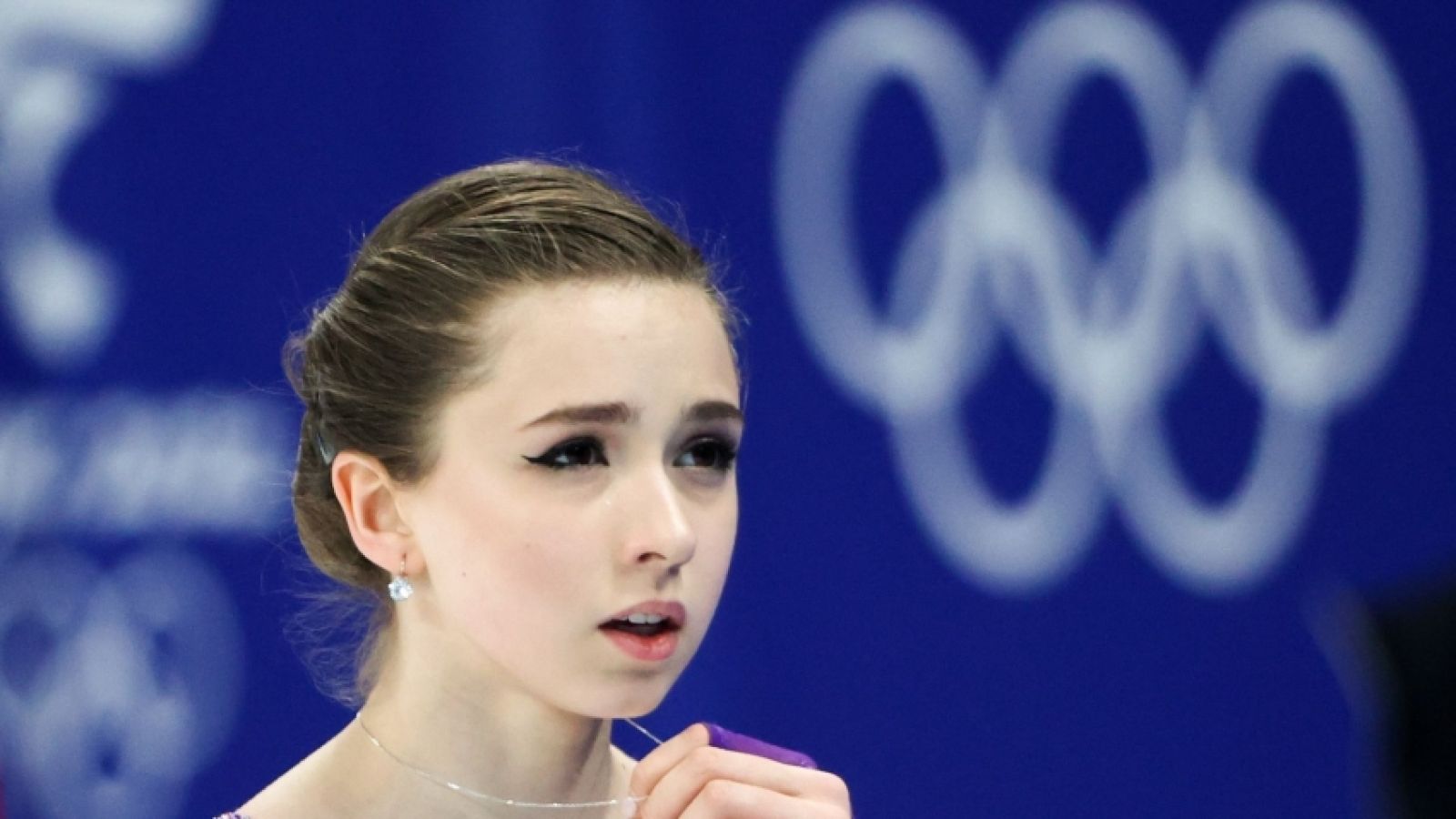
Tags: Athletics, Figure Skating, Winter Olympics, Winter Sports
Teenage Winter Olympics star Kamila Valieva may have failed a drugs test after accidentally consuming medication belonging to her grandfather, it has been claimed.
Denis Oswald, chair of the International Olympic Committee (IOC) disciplinary commission, said on Tuesday this was a theory put forward by the 15-year-old Russian figure skater.
"Her argument was contamination which happened with a product her grandfather was taking," Oswald told reporters in Beijing.
Valieva, 15, helped the Russian Olympic Committee (ROC) claim team figure skating gold last week, and she headed into the individual event on Tuesday as a big favourite to triumph there too.
She was cleared to compete by the Court of Arbitration for Sport (CAS), which stated that it was appropriate that a provisional suspension had been lifted.
That was after the IOC, the World Anti-Doping Agency (WADA) and the International Skating Union (ISU) appealed to CAS against a decision by the Russian Anti-Doping Agency (RUSADA) to let Valieva skate.
The youngster tested positive in December for trimetazidine, a medication that prevents angina attacks but is banned by WADA because it aids blood flow to the heart.
Oswald said the IOC would respect the CAS ruling and said Valieva's B sample had not yet been examined.
He did not apportion any blame but said the IOC would push for Valieva's entourage to face investigation over the saga.
Speaking in a news conference, Oswald said: "It's clearly a wish and a decision of the IOC, but also mainly on WADA, to examine all aspects of this case, including the situation of the entourage of the girl, because of course you can imagine a girl of 15 would not do something wrong alone. Yes, the entourage will be investigated."
Oswald played down the prospect of any sense of this being a repeat of state-sponsored doping, as experienced previously with Russian competitors, most notoriously at their home Winter Olympics in Sochi eight years ago.
"My impression from what I have seen and heard is that there is no connection with the institutionalised doping we had in Sochi," Oswald said.
"It seems to be a totally different case, but it is difficult to have an opinion without having all the details."
